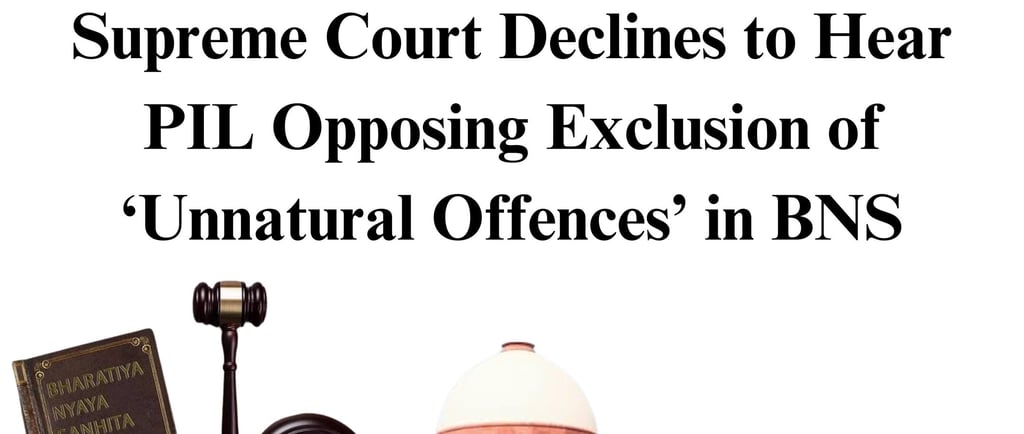Supreme Court Declines to Hear PIL Opposing Exclusion of ‘Unnatural Offences’ in BNS
10/14/20241 min read


On Monday, the Supreme Court declined to entertain a Public Interest Litigation (PIL) challenging the exclusion of provisions criminalizing non-consensual acts of sodomy and other “unnatural” sexual offences under the Bharatiya Nyaya Sanhita, 2023 (BNS). The Bench, comprising Chief Justice of India DY Chandrachud and Justices JB Pardiwala and Manoj Misra, stated that such matters fall within Parliament’s legislative authority, and the Court cannot mandate that specific acts be categorized as offences under the BNS. However, the Court permitted the petitioner to approach the Central government to address any perceived legal gaps. CJI Chandrachud emphasized that while the BNS lacks these provisions, the Court, under Article 142, lacks the authority to create offences, as this remains Parliament’s prerogative. Previously, Section 377 of the Indian Penal Code (IPC) imposed penalties of life imprisonment or up to ten years for “carnal intercourse against the order of nature” with any person or animal. However, in the 2018 Navtej Singh Johar ruling, the Supreme Court decriminalized consensual sexual acts under Section 377 while affirming its applicability to non-consensual acts, minors, and bestiality. The BNS, introduced in July, does not include a specific provision for non-consensual “unnatural” acts, raising concerns, particularly for cases involving male or transgender victims of rape. In a similar matter on August 28, the Delhi High Court directed the Central government to promptly consider the need for a provision similar to Section 377 under the BNS, stressing that there should be no legal vacuum regarding offences. The High Court highlighted the urgency of this issue, asserting that non-consensual acts should remain punishable to avoid gaps in the legal system.
